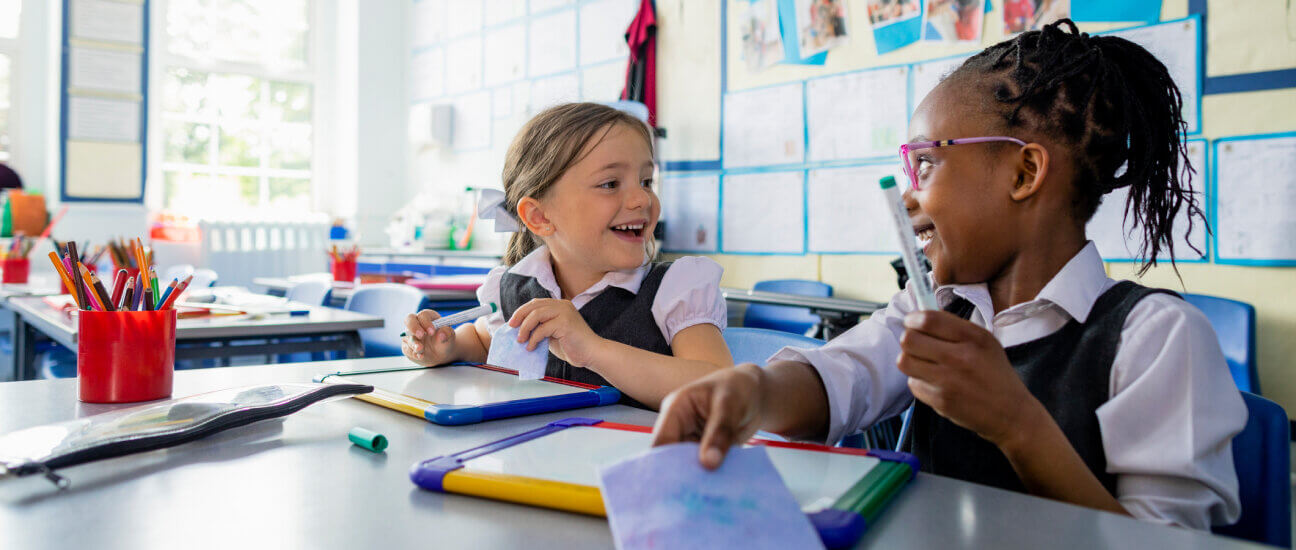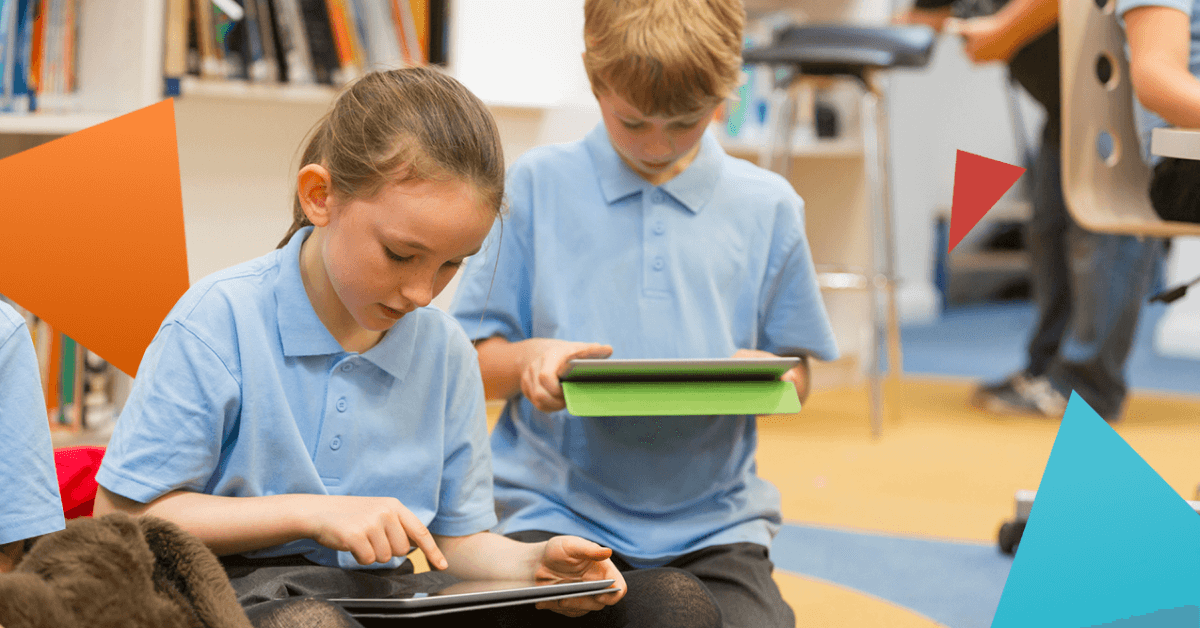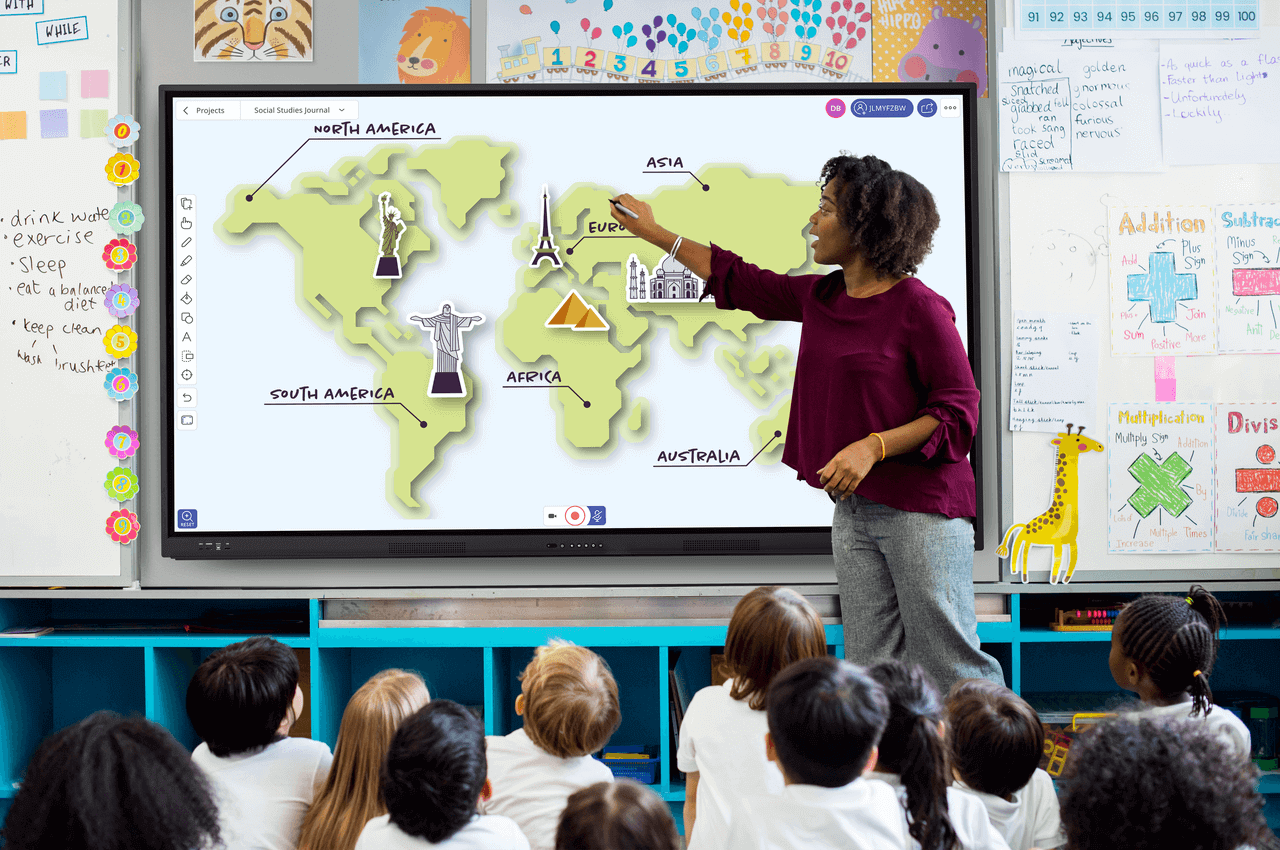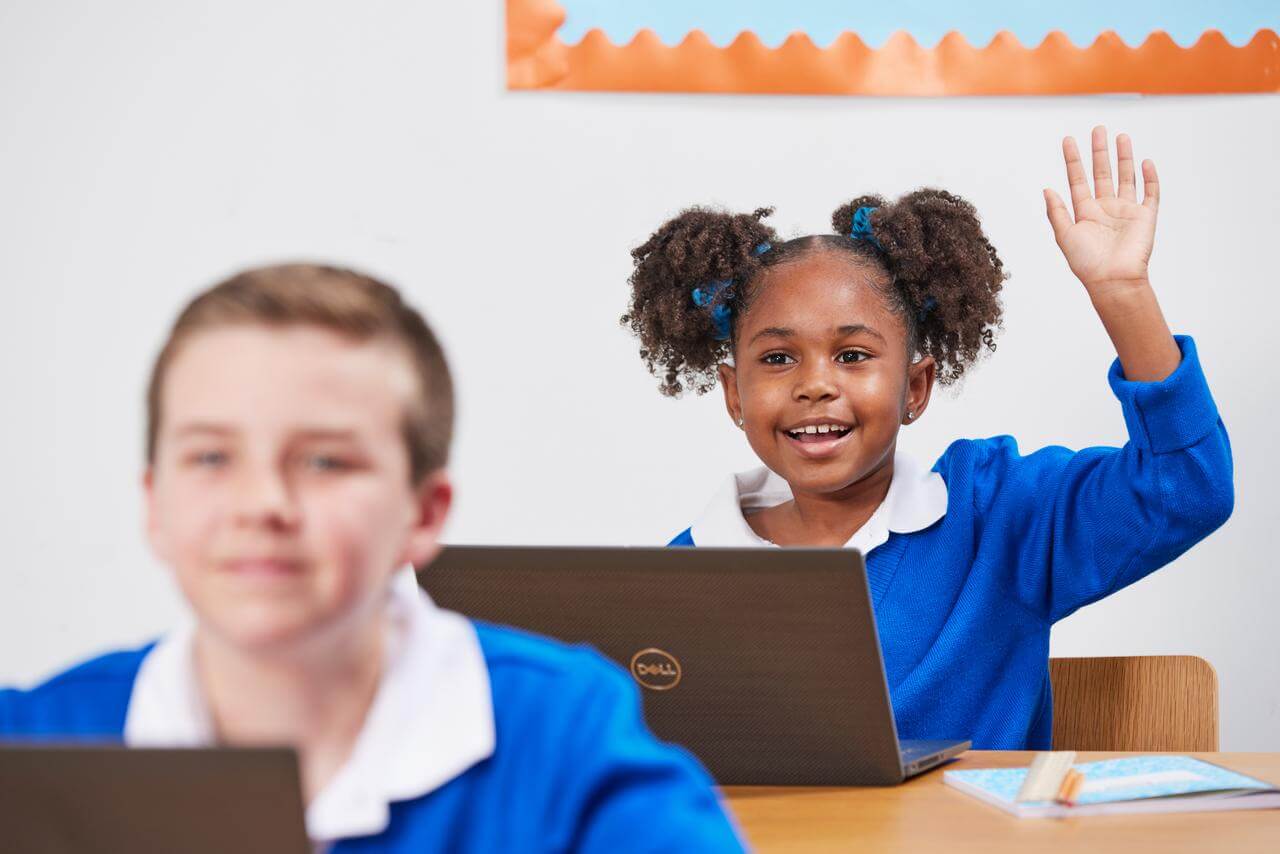Published on June 6th, 2022
What’s the future of edtech and education?
6 minute read

Although education is always responding to societal shifts, adapting to the impact on students’ needs as they progress towards the world of work, recent years have precipitated more change than most educators have ever experienced. Managing this disruption has made them more keen to understand current and future trends so they can feel more confident their school strategy is prepared.
Promethean’s Head of International Education Strategy, John Collick, interviewed renowned international futurist, Gerd Leonhard, to explore those trends. The full report unpacks the social, environmental, and education factors which will shape the future of the classroom—from the metaverse to social-emotional learning. It provides invaluable insight into how teachers can future-proof their instruction, and clarifies how their role is changing.
So how has education evolved up to the present day, and where is it likely to go next?
The future of the classroom is quite clear: there’s going to be a lot of digital tools, a lot of integration, and complete convergence of online/offline.
Gerd Leonhard
The future of edtech
Although many educators will remember when school edtech consisted essentially of classroom projectors, it’s advanced exponentially even in the last decade. Students have enjoyed practicing computer-based learning with Raspberry Pi, a tiny tool for teaching programming concepts without the need for a deep understanding of code. These early innovations proved the use case and value of technology in an education setting.
However, as this grew, schools were faced with an issue around tech access and providing sufficient devices—a need which recurs every year. Schools have sought to address this with initiatives like ‘bring your own device’ (BYOD), but these have presented their own issues around safety, without necessarily resolving digital equity. So many schools have placed increasing emphasis on the interactive whiteboard at the classroom’s heart—a central device which benefits all students.
Most recently, the growth of virtual learning environments has been catalyzed by periods of remote teaching and then hybrid learning. With this exposure to digital technologies, educators have embraced edtech’s potential for providing immersive experiences, building connections, and applying learning. These remain some of edtech’s most important student priorities, while staff are pursuing ease-of-use and tools which supplement their lesson delivery. The full report explores how the future of edtech will balance these immersive online experiences with practical, real-world applications.
Find out how educators’ and students’ relationship with edtech will change in the full predictions report.
The future of education
School strategy might always be seeking to maintain a modern, future-proof classroom, but their route to achieving that has historically navigated an ever-increasing number of priorities and legislation. They have to manage the pressure of schools’ performance being constantly reviewed at national and district levels, combined with the standards expected by those within the communities they serve. Governmental policies, such as the No Child Left Behind Act, have been introduced to democratize education so no students are disadvantaged.
Schools are also fundamentally dictated by curriculum changes. Just as subject content is periodically updated and refreshed, a debate has emerged around whether the traditional Science, Technology, English and Math (STEM) framework is the most egalitarian and effective approach. The full report explains why adopting a more holistic model developing vocational skills will prove essential in catering for future career needs.
Consistently, however, attainment has underpinned the evolution of education. When looking to the future, schools are often identifying how they can maximize students’ performance in summative exams. One of the biggest trends has championed formative assessment in uncovering strengths and weaknesses to target, as well as differentiated learning for empowering students to take ownership over their achievement. Most recently, however, education has become about more than graduating with stellar results, but pointed towards social-emotional learning as fostering well-adjusted, well-rounded, and more employable students.
Find out more about the ideal classroom of the future, what will be taught, and how you can prepare in the full predictions report.
Related Articles
- 5 ways to use edtech for National Mentoring Month
- How to connect your classroom’s edtech tools
- A guide to outfitting a classroom with edtech
- Using edtech for immersive learning experiences
- Edtech that doesn’t blow the budget
- Edtech upskilling for all levels of staff confidence
- Is there a limit to education technology?
- The benefits of technology in education




